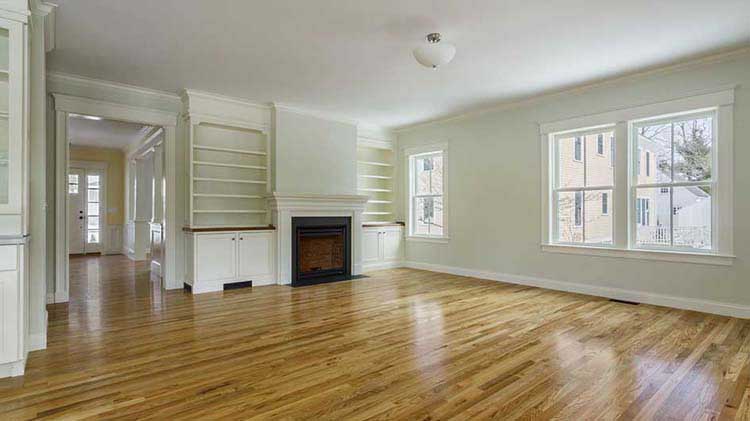What to do when you can’t pay your mortgage
Falling behind on your mortgage can be both serious and stressful. Read on to learn more about the resources available for mortgage assistance and actionable steps you can take.
Life is complicated, and there may come a time when making a mortgage payment becomes difficult. The potential causes for this are endless; unexpected emergencies, like the costs of a car accident, major home repair, losing your job or unforeseen medical expenses. In short: Life happens. The way you respond to these hardships can significantly impact your situation. If you’re facing the possibility of missing a mortgage payment, you may find it worthwhile to consider these strategies for what to do if you can’t pay your mortgage.
What happens if you don’t pay your mortgage?
Missing mortgage payments is the first step in a series of events that could lead to foreclosure, but it doesn’t have to be. When you miss two consecutive mortgage payments, your lender will send you a written notice outlining assistance options and where you can find more information. Foreclosure proceedings can only begin after a mortgage remains unpaid for at least 120 days, and only if foreclosure avoidance options have been reviewed.
I can’t pay my mortgage, what are my options?
If you find yourself unable to pay your mortgage, you have several options to consider. While there’s no one-size-fits-all solution for this situation, you can research the options available to you and decide which one is best-suited to your needs.
Contact your lender
Reach out to your mortgage lender and explain your situation. Lenders handle non-payment cases every day and are familiar with a variety of different resources for help paying mortgage costs. Contact your lender to find out if you qualify for any assistance programs. Before you call, be ready to explain why you can’t make your payment and if the issue is temporary or permanent. Be prepared to provide details about your current assets, including funds in your bank accounts, your income and monthly expenses.
Lenders may connect you with your mortgage servicer, which are companies that handle the day-to-day operations of your mortgage after it officially goes into effect. These companies are familiar with what happens if you can’t pay your mortgage and will work with you to help avoid that outcome.
Forbearance
Lending institutions can authorize forbearance, a temporary arrangement that involves pausing or reducing monthly payments for a set period, typically in response to unexpected events such as medical expenses or natural disaster damage to a home. Forbearance can provide temporary relief for borrowers facing unforeseen circumstances, although the full loan amount still needs to be repaid.
Loan modification
If your lender offers you a loan modification, it can mean changes to the repayment period, monthly payment amounts or other terms depending on your type of mortgage. If you’re considering loan modification, understand the new terms of the loan fully so that you can confidently assess whether it’s the right choice for you.
Refinancing
Refinancing replaces your current loan with a new one. This option may allow for the possibility of new terms, refinancing can also allow you to seek a new loan arrangement with a different lending institution. If refinancing your home is an option you’re considering and you’d like to learn more, review our article on refinancing and when it can be useful.
Repayment plan
A lender can work with a borrower to create a repayment plan when they are unable to make timely loan payments. This structured agreement establishes a repayment timeline based on the borrower's current financial situation. It's often used after a forbearance period. It can be a helpful tool for people who are working to get their finances in order and cannot immediately afford their mortgage payments.
Rent the home
If you're a homeowner, becoming a landlord by renting out your home or even just a part of it could be an option to explore. The extra income from renters can help with your mortgage payments. However, keep in mind that you'll still be responsible for maintaining and repairing the property.
Sale of the home
In some cases, it may be advantageous to simply sell your home and use the proceeds from the sale to pay off your mortgage. This is a big decision and needs a lot of consideration. If you’re considering selling your home, you’ll want to determine the value of your home compared to the remaining mortgage balance.
Home short sale
A short sale of a home occurs when the homeowner sells their property for less than the outstanding mortgage balance. This option is typically considered when foreclosure is the only alternative. The lender must approve the short sale. Even after the sale, there might be remaining debt, known as a deficiency, which is still owed to the lender. In some cases, the lender may agree to waive the deficiency upon completion of the short sale. Although a short sale results in a substantial financial loss compared to the borrower's initial investment in the home, it can sometimes be a better option than foreclosure for both the borrower and the lender.
Deed in lieu of foreclosure
A deed in lieu of foreclosure is an agreement between a lender and a borrower to avoid foreclosure. The borrower gives up ownership of the house by transferring the deed to the lender. In exchange, the lender agrees not to foreclose on the home. This arrangement allows the borrower to avoid the foreclosure process and the lender to potentially recover losses from the unpaid debt.




